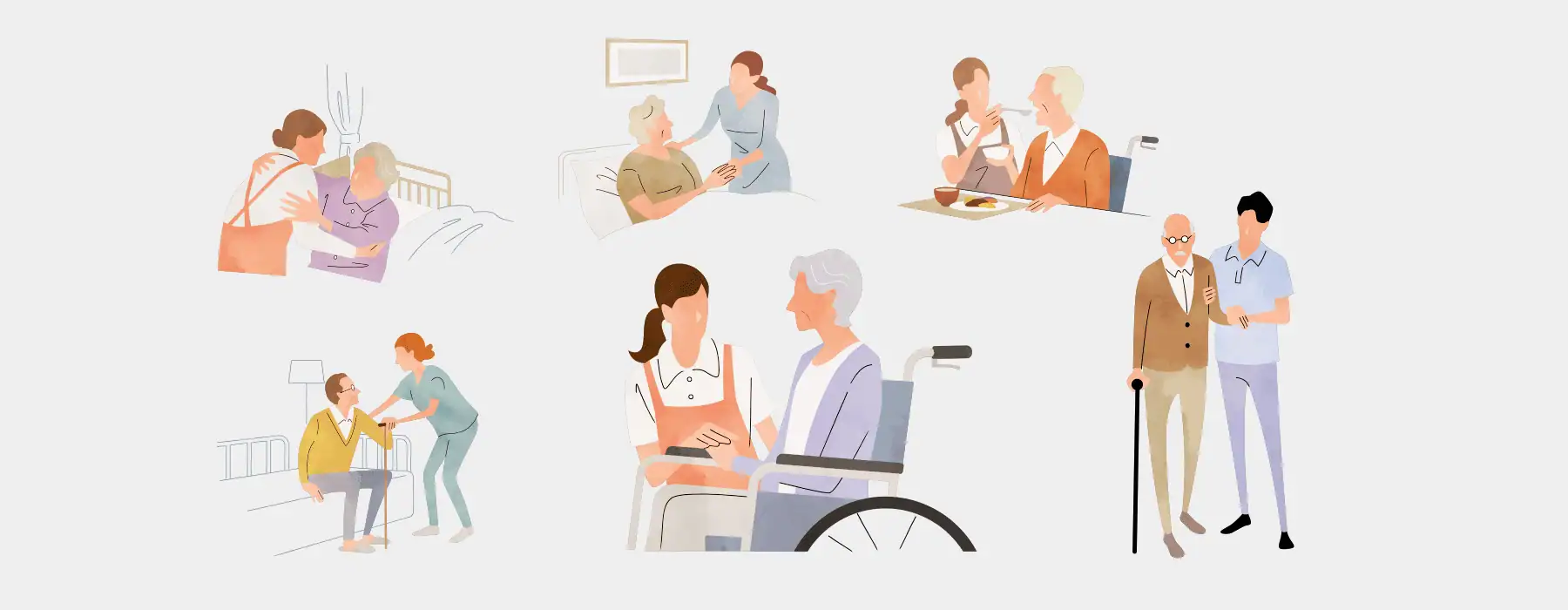In the care homes industry, managing operations efficiently while prioritising staff and resident well-being is a constant challenge. Recently, we hosted Sharon Nunn, Financial Controller at Friends of the Elderly, for a webinar discussing her organisation’s journey to overcoming these challenges. Here are the key insights from our conversation.
Understanding the Starting Point
When Sharon joined Friends of the Elderly, their 17 care homes relied heavily on manual timesheets for tracking staff hours. This system, rife with inefficiencies, led to frequent payroll errors, misunderstandings, and numberous additional monthly pay runs to reimburse employees for incorrect payments. Sharon described these processes as “fighting fire with fire,” highlighting the difficulty of ensuring accurate pay and maintaining staff satisfaction.
Manual entries were not only error-prone but also time-consuming, causing delays in payroll and discrepancies in pay slips. These challenges created frustration among staff, who often felt undervalued when their pay was incorrect.
Transitioning to a Flexible Workforce Management System
Friends of the Elderly sought a solution tailored to their specific needs, not an off-the-shelf system requiring them to adjust their processes. This is where Softworks came into play. Sharon emphasised the importance of collaboration, noting,
“We don’t ask what you do—we ask how you do it.”
Softworks provided a highly configurable workforce management system that addressed Friends of the Elderly’s unique requirements. By replacing manual processes with automation, they eliminated errors and streamlined payroll operations.
Overcoming Resistance to Change
Implementing a new system in any organisation comes with challenges, particularly when it disrupts established workflows. Sharon faced initial resistance from staff, who feared the system was designed to monitor and mistrust them. She tackled this by visiting care homes, engaging with staff, and explaining the benefits of the new system.
“It’s not about checking up on you,” she reassured them. “It’s about ensuring you get paid accurately for the hours you work.”
By emphasising transparency and addressing individual concerns, Sharon successfully gained staff buy-in.
Results: Efficiency and Staff Satisfaction
The results were transformative. Payroll processes that once took days to reconcile were now completed seamlessly. The frequency of payroll adjustments dropped from 20-30 per month to fewer than one. Employees could view their schedules, clock-ins, and pay details in real-time through a mobile app, ensuring transparency and trust.
The benefits extended beyond payroll. The system provided detailed reports on absenteeism, shift patterns, and other key metrics, enabling better decision-making. For instance, trends in absenteeism revealed underlying issues, allowing managers to address them proactively. Sharon remarked,
“Patterns that were impossible to identify manually are now easily visible.”
Building a Culture of Engagement
Sharon’s approach went beyond implementing technology—she fostered a culture of engagement. By involving staff in the process and addressing their concerns, she built trust and improved morale. Staff retention, already above the industry average, further improved, with the average tenure of employees being over seven years.
The system also allowed managers to focus on their core responsibilities rather than administrative tasks. Sharon noted,
“Managers no longer lose their mornings stuck doing paperwork. They can concentrate on supporting their teams and delivering quality care.”
Lessons for the Care Home Sector
The journey of Friends of the Elderly offers valuable lessons for care home operators:
- Tailor Solutions to Your Needs: A one-size-fits-all approach rarely works. Collaborate with technology providers to ensure the solution fits your organisation’s processes.
- Engage and Educate Staff: Transparency and communication are key to gaining buy-in for new systems. Address concerns early and involve employees in the transition.
- Leverage Data for Decision-Making: Modern workforce management systems provide actionable insights that can improve operations, reduce costs, and enhance staff satisfaction.
- Focus on Staff Well-Being: Accurate pay, transparent processes, and an understanding approach to staff needs build a positive workplace culture.
Conclusion
Sharon’s story demonstrates the power of listening, collaboration, and technology in overcoming operational challenges. By adopting a flexible, employee-centric workforce management system, Friends of the Elderly achieved significant improvements in efficiency and staff satisfaction.
For care home operators navigating similar challenges, the insights shared by Sharon serve as a guiding light. Investing in the right tools and fostering a culture of engagement can drive lasting change, ensuring both staff and residents thrive.
To hear more from Sharon Nunn and learn about Friends of the Elderly’s journey, watch the full webinar here.









This article provides valuable insights into the challenges faced by care homes, particularly from the perspective of clients. I found the discussion on client needs and expectations particularly enlightening. It’s crucial for care homes to adapt and respond to these insights to improve service quality.